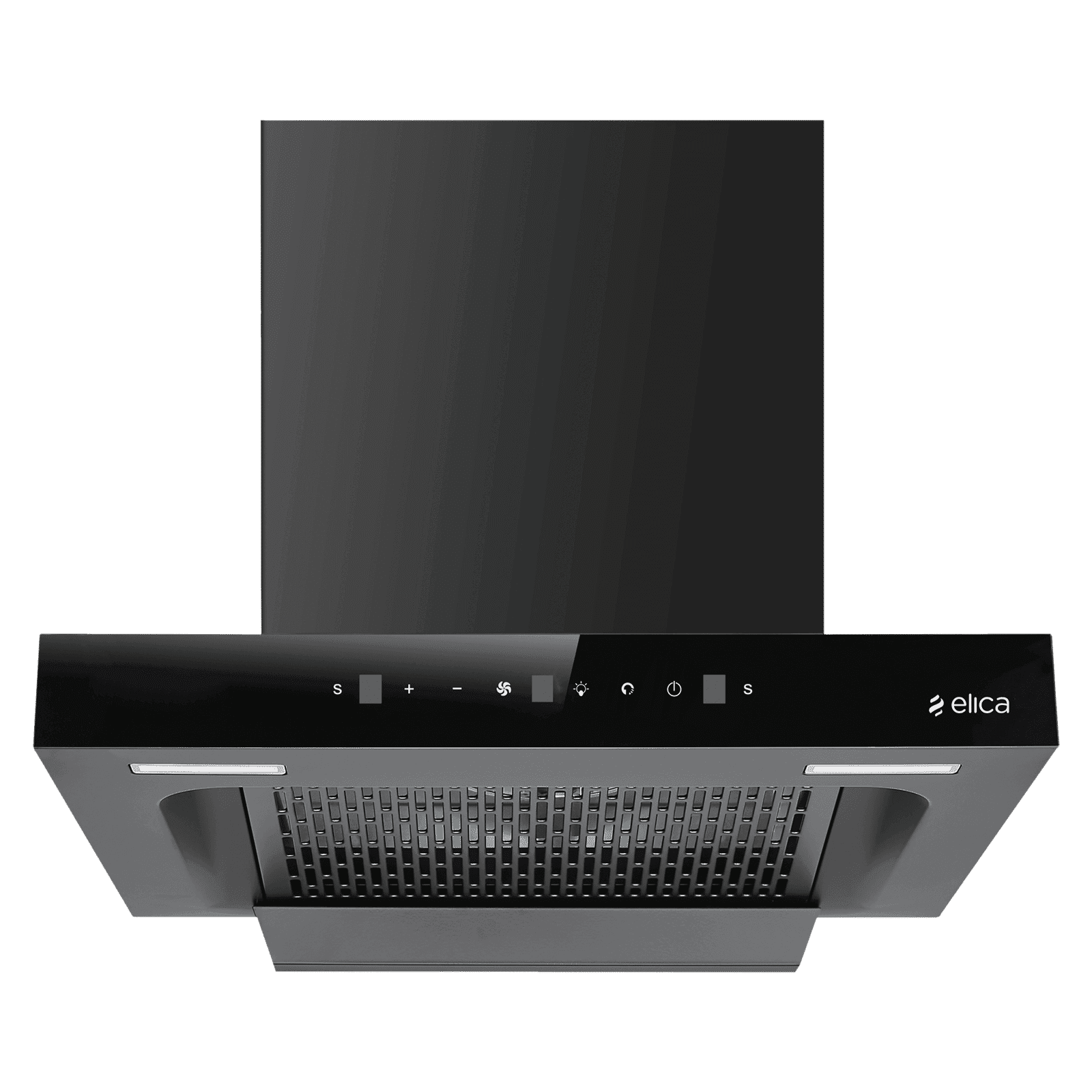
Home Appliances
•04 min read

Buy elica SPT FL 600 BLDC HAC LTW MS NERO 60cm 1500m3/hr Ducted Auto Clean Wall Mounted Chimney with Motion Sensor Control (Black) online at best prices from Croma. Check product details, reviews & more. Shop now!
Imagine sitting by your cozy fireplace, only to discover that instead of welcoming you with warmth, your living room is filled with lingering smoke chimney issues. The frustration is real, and it goes beyond discomfort. When smoke invades your indoor space, it not only disrupts the ambience but also poses potential health hazards. In this post, we’ll explore why chimney smoke occurs and how you can effectively restore your home’s comfort with a simple, practical step-by-step tutorial.
The presence of chimney smoke often results from poor air circulation in the chimney flue. Blockages such as bird nests or accumulated debris hinder the proper flow of smoke. Additionally, using a wood-burning chimney with green or wet wood and an improper chimney design can further exacerbate the problem.
Beyond the inconvenience, smoke within your home poses health risks. The pollutants in chimney flue smoke may trigger respiratory issues and aggravate asthma symptoms. Soot accumulation can also lead to damage on furniture and walls, not to mention reduce the efficiency of your fireplace chimney. Adopting strict home chimney maintenance routines is essential to ensure that smoke control in chimneys is effectively managed.
Before diving into chimney smoke removal, it’s vital to prioritise safety. Ensure the room is well ventilated, and don protective gear such as gloves and a mask to protect yourself from inhaling harmful smoke or soot particles.
Gather your tools for a successful cleanup. Essential items include a fireplace chimney cleaning brush for soot removal, a smoke extractor for chimney to assist with ventilation, and a chimney exhaust fan to ensure improved air circulation. A reliable flashlight will also help in inspecting the chimney flue.
Begin by identifying any blockages within the chimney. Look for bird nests, accumulated debris, or other obstructions that could restrict airflow. Don’t forget to assess the condition of both the damper and chimney cap, as their proper function is essential for effective smoke control in chimneys.
Once you have inspected the structure, it’s time to clean. Grab your fireplace chimney cleaning brush and carefully remove the soot buildup along the inner walls of the flue. A thorough cleaning of both the damper and flue will help restore an unobstructed path for smoke or any potential blockages that may cause recurring issues.
Enhance the smoke chimney performance by installing a robust smoke ventilation system. A chimney exhaust fan can dramatically improve airflow, ensuring that smoke is efficiently directed outside. Familiarise yourself with how to adjust and test this system to achieve optimal performance. Modern smoke extractors for chimney designs integrate seamlessly with your setup, offering a reliable solution for smoke removal.
Light a small fire and observe the smoke. Notice whether it is exiting through the top as intended or if some remains inside. If necessary, adjust the ventilation and damper settings until you witness a smooth, uninterrupted flow. This testing phase is crucial to achieve effective chimney air circulation.
Consistent home chimney maintenance is the key to preventing future issues. Schedule an annual inspection to catch any potential blockages early and clean the chimney flue periodically. Adopting a disciplined cleaning routine can ensure that your wood-burning chimney remains efficient and free from recurring problems.
Another vital component of smoke reduction is selecting the appropriate firewood. Always opt for seasoned wood as it reduces the production of excess smoke. Avoid burning green or wet wood, which can contribute to the problem, and ensure you’re making choices that align with best practices for chimney smoke removal.
Ensure that whenever you’re using the fireplace, the damper is fully open to facilitate proper air movement. Sealing leaks around the chimney can also prevent unwanted drafts, making your smoke control measures even more effective.
Expert Tip: Improve Chimney Efficiency
Did you know that installing a chimney exhaust fan can significantly reduce smoke issues? These fans create consistent airflow, ensuring that smoke is properly vented outside. This simple addition can be a game-changer for homes experiencing persistent chimney smoke problems.
The phrase describes someone who smokes excessively, drawing a parallel to the constant emission of smoke from a chimney.
Typically, smoke results from burning wood in your fireplace. However, excessive smoke may indicate issues such as poor ventilation, blockages, or the use of damp wood.
A chilly flue, a closed damper, and blockages like nests or debris can all contribute to a smoky chimney, along with the use of green or wet wood in a wood-burning unit.
Reducing smoke involves regular fireplace chimney cleaning, selecting seasoned firewood, ensuring proper ventilation, and potentially installing a smoke extractor for chimney or exhaust fan for enhanced smoke control.
Yes, smoke inside your home can be dangerous as it contains harmful particles and gases such as carbon monoxide, which pose serious health risks.
Chimney smoke problems may seem like a daunting challenge, but with patience and proper techniques, you can restore comfort and safety to your home. The step-by-step approach detailed above ensures that you address both immediate issues and establish long-term maintenance routines. With regular cleaning, vigilance, and the integration of effective smoke ventilation systems, your fireplace experience can be both efficient and enjoyable. Continue to explore expert insights and stylish home improvement tips to keep your environment smoke-free and full of warmth.
Enjoy the added benefits like NeuCoins rewards and express delivery options provided when shopping smartly with our trusted platforms. The ease of access to expert guidance and quality products ensures that even home maintenance becomes a rewarding experience. Stay warm, stay safe, and relish the comfort of a well-maintained chimney that truly elevates your living space.